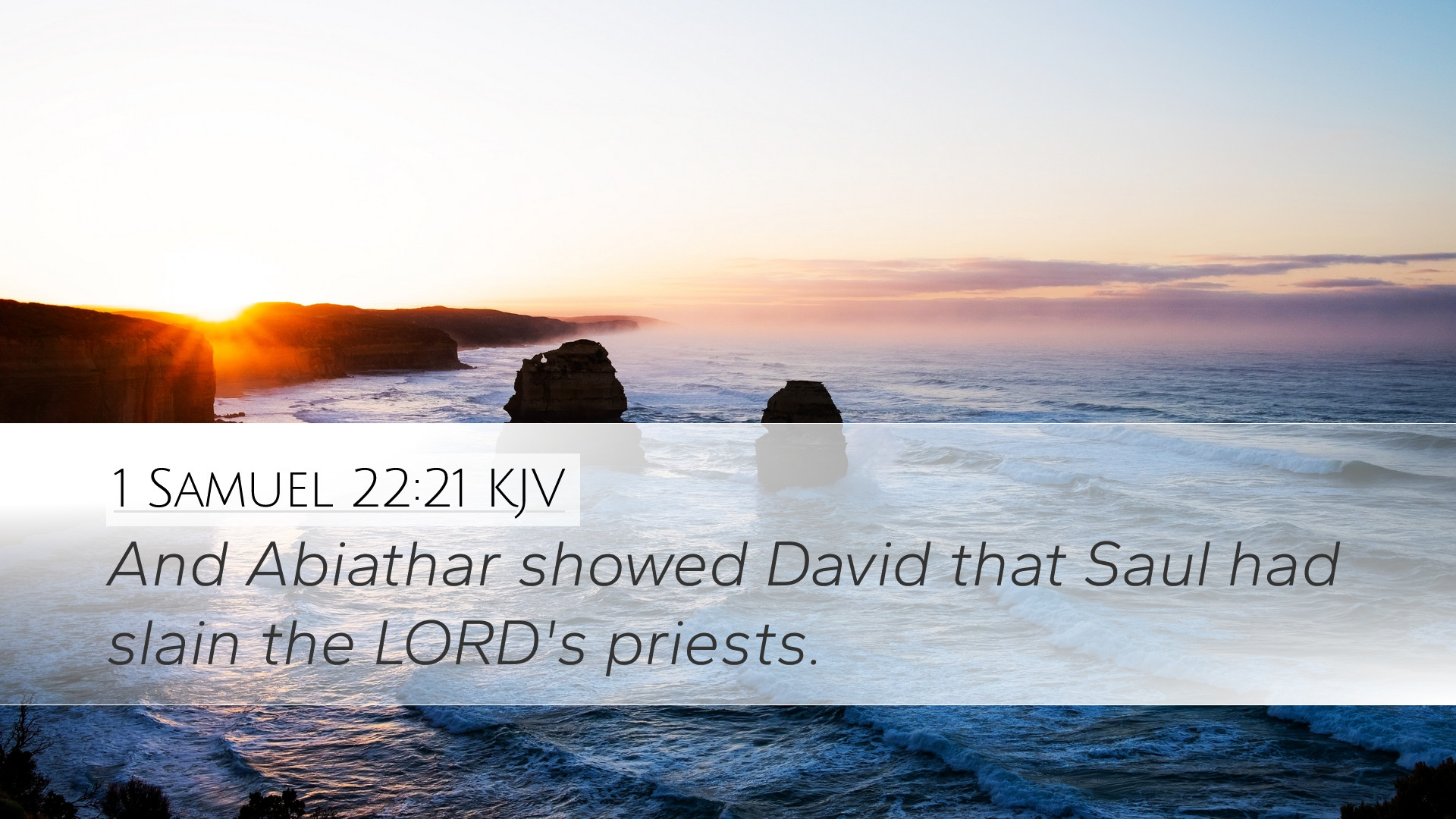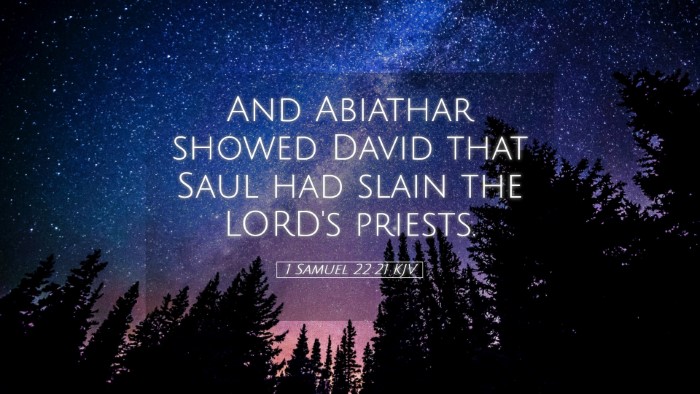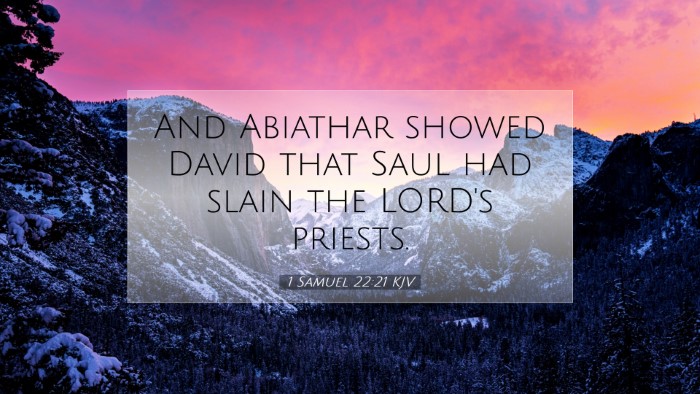1 Samuel 22:21 - Commentary Overview
This commentary explores a pivotal verse in 1 Samuel 22:21, which reads:
"And Abiathar told David that Saul had slain the priests of the Lord."
This verse reflects a crucial moment in the narrative of David and highlights the severe implications of King Saul's actions against the priests at Nob. Below, we explore various insights from respected public domain commentaries by Matthew Henry, Albert Barnes, and Adam Clarke.
Historical Context
In understanding 1 Samuel 22:21, one must consider the historical context surrounding David and Saul. David, who had been anointed king, was fleeing from Saul, who had turned against him out of jealousy and fear. The priesthood, particularly represented by Ahimelech and Abiathar, plays a significant role in this narrative of conflict between Saul and David.
Abiathar's Role
Abiathar, the son of Ahimelech, escaped the massacre and became a crucial ally to David. His arrival and the message he carries provide a turning point in David's leadership as he transitions from a fugitive to a king-in-waiting.
Commentary Insights
Matthew Henry
Matthew Henry emphasized the gravity of Saul's actions in this verse, noting that the massacre of the priests signifies Saul's complete moral decline. He points out that Saul, once chosen by God, is now acting out of fear and desperation, showing a stark contrast to David, who seeks to honor God and protect His servants.
- Application of Fear: Henry examines how fear can warp one's sense of morality, leading to actions contrary to God's will.
- God's Justice: He emphasizes that despite Saul's temporary success in eliminating those who supported David, God's justice will ultimately prevail.
Albert Barnes
Albert Barnes provides an analytical approach to the implications of 1 Samuel 22:21. He notes that Abiathar’s news serves as a warning and a confirmation of Saul's tyrannical behavior.
- Saul's Madness: Barnes portrays Saul's actions as an embodiment of madness fueled by paranoia, demonstrating how lost power can lead to extreme actions.
- Priestly Significance: He stresses the importance of the priesthood in Israel, highlighting how the priests were seen as vital mediators between God and the people, and their destruction was catastrophic.
Adam Clarke
Adam Clarke offers an extensive examination of Abiathar's role within the context of the Israelite history and the priesthood.
- Abiathar’s Narrative: Clarke notes that Abiathar’s survival showcases God’s providence, suggesting that God preserves a remnant even amid persecution.
- Consequences of Saul’s Actions: He elucidates the long-term consequences Saul’s massacre has on the nation of Israel, particularly the decline of the priesthood and subsequent divisions.
Theological Implications
1 Samuel 22:21 brings forth essential theological discussions regarding leadership, divine justice, and the role of the priesthood. Each commentator underscores the danger of authority unchecked by godliness, presenting a lesson on accountability:
- Accountability of Leadership: Leaders like Saul, who stray from divine principles, face dire consequences. This serves as a reflection for contemporary leaders to remain humble and accountable.
- The Role of Faithfulness: Abiathar’s faithfulness to God’s anointed, despite Saul's wrath, embodies the call for believers to remain steadfast amidst persecution.
Conclusion
The study of 1 Samuel 22:21 reveals much about the dynamics of power, fear, and faithfulness. The reflections from Matthew Henry, Albert Barnes, and Adam Clarke provide a rounded and profound understanding of the implications this verse holds for leaders and believers today.


